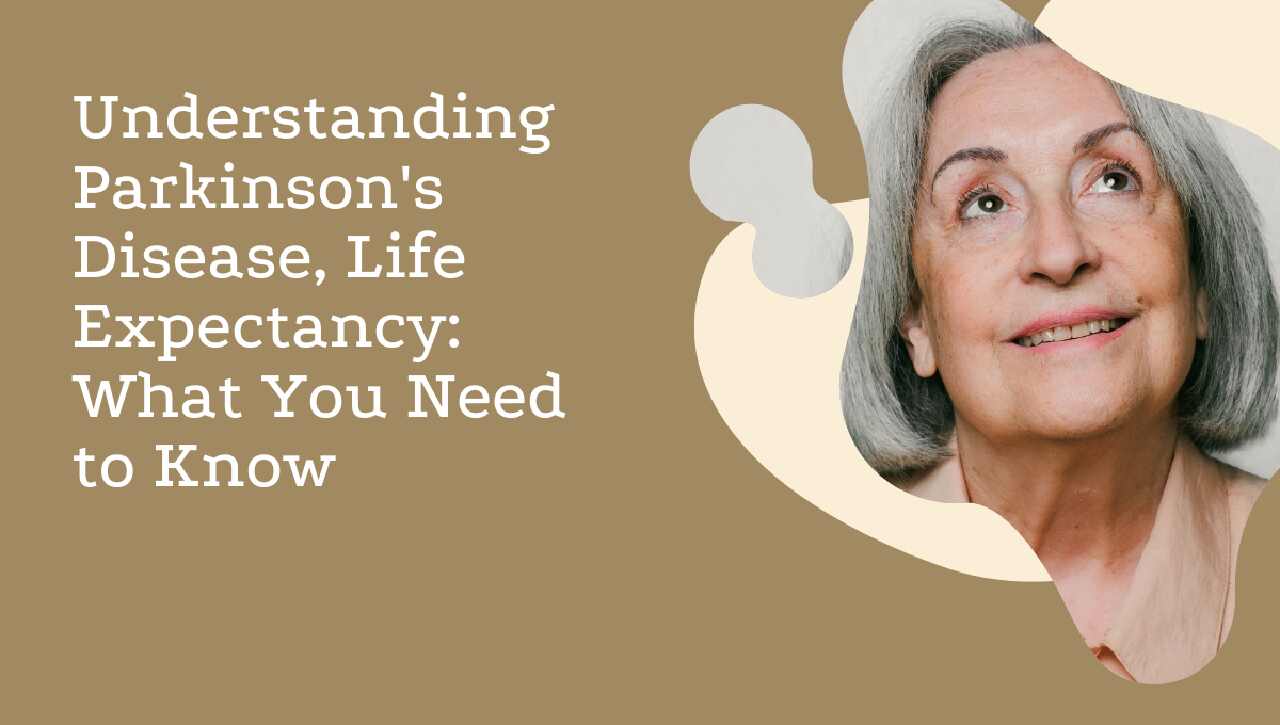Understanding Parkinson’s Disease, Life Expectancy: What You Need to Know. A neurological condition that affects millions of individuals worldwide is Parkinson’s disease. If you or a loved one has been diagnosed with Parkinson’s, one of the concerns that may arise is the impact on life expectancy. In this article, we will discuss factors affecting Parkinson’s disease life expectancy, treatment options, and ways to enhance overall well-being.

Parkinson’s disease overview
Parkinson’s disease is characterized by the gradual degeneration of nerve cells in the brain, especially nerve cells that produce dopamine. This neurotransmitter plays an important role in controlling movement and coordination. As Parkinson’s progresses, individuals may experience tremors, stiffness, and difficulty with balance and coordination.
Factors affecting Parkinson’s disease life expectancy:
Life expectancy with Parkinson’s disease can vary widely. Several factors contribute to this, including:
Age at diagnosis: In general, individuals diagnosed at a younger age may experience slower progression of symptoms and potentially a longer life expectancy.
Severity of symptoms: The degree of disability and severity of symptoms can affect life expectancy. People with mild symptoms may have a better prognosis.
Related health issues: People with Parkinson’s disease may have a higher risk of developing other health problems, such as heart problems. Managing overall health is important in influencing life expectancy.
Treatment and Management of Parkinson’s disease life expectancy:
Although there is no cure for Parkinson’s disease, various treatments aim to manage symptoms and improve quality of life. These include:
Medications: Dopamine replacement medications may help ease some symptoms.
Physical therapy: Exercise and physical therapy can improve mobility and reduce stiffness.
Lifestyle changes: A healthy lifestyle, including a balanced diet and regular exercise, can have a positive impact on overall well-being.
Increasing quality of life:
In addition to therapeutic interventions, certain lifestyle changes can enhance the quality of life of individuals with Parkinson’s disease:
Nutrition: A well-balanced, nutrient-rich diet is beneficial to general health..
Exercise: Regular physical activity can improve mobility and maintain muscle strength.
Mental health: Managing stress and seeking support for mental well-being is essential.
Ask for support Parkinson’s disease life expectancy
Living with Parkinson’s disease can be challenging for both individuals and their caregivers. Seeking help from health care professionals, support groups, and loved ones can make a significant difference in managing the condition and maintaining a positive outlook.
Conclusion
While Parkinson’s disease life expectancy presents challenges, understanding the factors affecting life expectancy and taking a holistic approach to management can improve overall well-being. It is essential to work closely with health care professionals to design a care plan that meets individual needs. By staying informed and taking proactive steps, people with Parkinson’s can live full lives, regardless of the challenges posed by the condition.
Frequently asked questions (FAQs) related to Parkinson’s disease life expectancy with brief and informative answers:
Q1: What is Parkinson’s disease?
A progressive neurological condition affecting motor control is Parkinson’s disease. It results from the gradual loss of dopamine-producing nerve cells in the brain, causing symptoms such as tremors, stiffness, and difficulty balancing.
Q2: Does Parkinson’s disease affect life expectancy?
Life expectancy with Parkinson’s can vary. Factors such as age, severity of symptoms, and overall health at the time of diagnosis play a role. Generally, it does not directly reduce life expectancy, but it is important to manage associated health problems.
Q3: How does age at diagnosis affect life expectancy?
In some cases, individuals diagnosed at a younger age may experience a slower progression of symptoms, potentially leading to a longer life expectancy than those diagnosed later in life.
Q4: Can Parkinson’s disease be cured?
There is currently no cure for Parkinson’s disease. However, various treatments, including medications, physical therapy, and lifestyle changes, can help manage symptoms and improve quality of life.
Q5: What role does medication play in the treatment of Parkinson’s?
Dopamine replacement medications are commonly prescribed to reduce symptoms. These medications aim to compensate for decreased dopamine levels in the brain, improving motor function.
Q6: How important is physical therapy in managing the symptoms of Parkinson’s?
Physical therapy is important to maintain mobility, reduce stiffness, and improve overall physical function. Regular exercise has been shown to have a positive effect on Parkinson’s patients.
Q7: Can a healthy lifestyle affect life expectancy with Parkinson’s?
Yes, adopting a healthy lifestyle, including a balanced diet and regular exercise, can have a positive impact on overall well-being and potentially affect life expectancy.
Q8: Are there support groups for people with Parkinson’s disease?
Yes, support groups provide valuable emotional support and information. Connecting with others who understand the challenges can help individuals and their caregivers on their journey to living with Parkinson’s.
Q9: How can people with Parkinson’s improve their quality of life?
In addition to medical interventions, individuals can improve their quality of life by maintaining good nutrition, getting regular exercise, managing stress, and getting help for mental well-being.
Question 10: Is Parkinson’s disease fatal?
Parkinson’s disease is not considered fatal. However, complications and related health problems can affect life expectancy. Regular medical checkups and active management are essential.
Hi my family member I want to say that this post is awesome nice written and come with approximately all significant infos I would like to peer extra posts like this
thanks dear i am write a new post on anxiety disorder and phobia.Please read and like my post and please activate the my push notification bell.